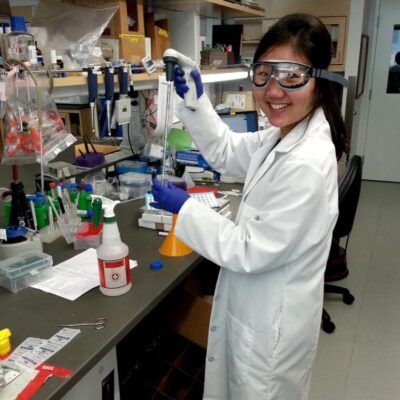Sung Won Han Rose Hills
Defining the interaction between c-Met and beta-1 integrin in invasive resistance to anti-angiogenic therapy in glioblastoma
Glioblastoma is one of the most aggressive brain cancers. Recent studies have shown that only a subset of patients exhibit enduring response to anti-angiogenic therapy, which inhibits the growth of blood vessels, approximately half developing acquired resistance after initial response (anti-angiogenic factors include VEGF and bevacizumab). A key feature of anti-agniogenic resistance is the manifestation of a more invasive tumor, and it has been identified that tumor cell invasion is dictated by chemotaxis, cellular movement due to a soluble factor gradient, and haptotaxis, cellular movement due to molecules within the extracellular matrix. Recent work in the Aghi lab has shown that c-Met, a chemotactic factor, and beta-1 integrin, a haptotactic factor, are both up-regulated in patients with bevacizumab-resistant glioblastomas (BRGs). My project aims to examine the physical and functional interaction between c-Met and beta-1 integrin in hopes of better understanding the aggressive and invasive nature of BRGs.
Message To Sponsor
I had an opportunity to shadow a neurosurgery, where I was able to witness the direct link between a hospital and a research lab: hospital is the place where newly discovered results and knowledge in the lab can be applied. The Rose Hills Foundation has gratefully allowed me to further explore this newfound appreciation I have for research. Because I'm interested in pursuing medicine in the neuroscience field, I'm very much excited to partake in my project, hopefully providing some clarification into the development of anti-angiogenic resistance and helping to guide future strategies for the treatment and management of glioblastoma.